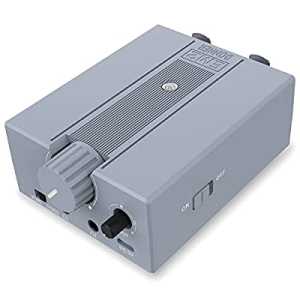
When Should I Take My Child To A Cardiac Specialist

As parents, our primary concern is ensuring the health and well-being of our children. While many health concerns can be addressed by a pediatrician, certain situations require the expertise of a cardiac specialist. A pediatric cardiologist specializes in diagnosing and treating heart-related conditions in children, from congenital heart defects to acquired heart diseases. But how do you know when to seek their expertise? This article explores the signs, symptoms, and scenarios that indicate it’s time to take your child to a cardiac specialist.
Understanding Pediatric Cardiology
A cardiac specialist for children, also known as a pediatric cardiologist, focuses on diagnosing and treating heart conditions in infants, children, and teenagers. These specialists deal with issues such as:
- Congenital heart defects (present from birth)
- Heart rhythm abnormalities (arrhythmias)
- Heart murmurs
- Chest pain related to cardiac issues
- Cardiomyopathies (diseases of the heart muscle)
Early detection and timely intervention can significantly improve outcomes for children with heart problems. Hence, recognizing the signs early is crucial.
Signs Your Child May Need a Cardiac Specialist
While many symptoms can overlap with non-cardiac issues, some signs indicate the need for specialized care. Here’s when you should consider consulting a pediatric cardiac specialist:
1. Cyanosis (Bluish Tint to Skin)
If your child’s skin, lips, or fingernails have a bluish tint, it may indicate a lack of oxygen in the blood. This could be due to a congenital heart defect or a circulatory issue, both of which require immediate medical attention.
2. Shortness of Breath
If your child experiences shortness of breath, especially during activities, it might signal a heart issue. Infants may show signs of labored breathing while feeding, which is another red flag.
3. Poor Growth or Feeding Difficulties
Heart problems can affect a child’s growth and development. If your child is not gaining weight, seems tired after minimal activity, or struggles during feeding, a cardiac evaluation may be necessary.
4. Frequent Fainting or Dizziness
While fainting can be common in teenagers, frequent or unexplained episodes may indicate an underlying heart rhythm problem that requires further evaluation.
5. Chest Pain
Chest pain in children is rarely linked to the heart, but it should not be ignored, especially if it occurs during physical activities or is accompanied by other symptoms like dizziness or fainting.
6. Heart Murmurs
Heart murmurs are sounds made by turbulent blood flow in or near the heart. While most are harmless, some murmurs may indicate structural heart issues that need attention.
7. Family History of Heart Disease
If there is a family history of congenital heart defects, arrhythmias, or other cardiac conditions, it’s wise to have your child screened, even in the absence of symptoms.
When to Consult a Cardiac Specialist
In some cases, your pediatrician may refer your child to a cardiac specialist if they detect abnormalities during a routine check-up. Common scenarios include:
- Abnormal EKG or Echocardiogram Results: If initial diagnostic tests show irregularities, a cardiac specialist can provide a more detailed evaluation.
- Congenital Heart Defects Identified at Birth: Many heart defects are detected during prenatal ultrasounds or shortly after birth.
- Persistent Symptoms: If symptoms like fatigue, cyanosis, or chest pain persist despite treatment for other conditions, a cardiac evaluation is necessary.
How a Cardiac Specialist Can Help
Pediatric cardiologists use a range of diagnostic tools to assess your child’s heart health. These include:
- Electrocardiogram (EKG): Measures the electrical activity of the heart.
- Echocardiogram: An ultrasound of the heart to check its structure and function.
- Stress Testing: Evaluates how the heart performs under physical stress.
- Holter Monitoring: Tracks heart rhythms over 24 to 48 hours.
Treatment options vary depending on the diagnosis and can include lifestyle changes, medications, or surgical interventions.
If you’re looking for expert cardiac care for your child, consult Dr. Kalkekar’s Cura Clinic, a trusted child specialist in Seawoods. They’ll guide you through every step to ensure your child’s heart health and overall well-being.
Preventive Measures
While not all heart conditions can be prevented, certain measures can promote heart health in children:
- Healthy Diet: Encourage a balanced diet rich in fruits, vegetables, and whole grains.
- Regular Exercise: Physical activity strengthens the heart and overall health.
- Routine Check-ups: Regular visits to the pediatrician can help detect issues early.
- Avoiding Smoking and Secondhand Smoke: Exposure to tobacco can harm a child’s heart and lungs.
The Role of Early Detection
Early detection is key in managing heart conditions effectively. Many heart problems, if caught early, can be treated successfully, allowing your child to lead a healthy life. Regular check-ups and being attentive to your child’s symptoms can make a significant difference.
Conclusion
Knowing when to take your child to a cardiac specialist can be life-changing. Symptoms like cyanosis, shortness of breath, chest pain, or fainting should never be ignored. If you’re ever concerned about your child’s heart health, don’t hesitate to consult a specialist. Early intervention can provide the necessary care and peace of mind for you and your child.
Author Bio
Article Comments
No Comments!
At present there are zero comments on this article.
Why not be the first to make a comment?
Similar Articles
Search Pages
Upgrade User Account
account to full use of editor,
including hyperlinks
Article Categories
There are zero sub-categories in this parent category.
There are zero sub-categories in this parent category.











